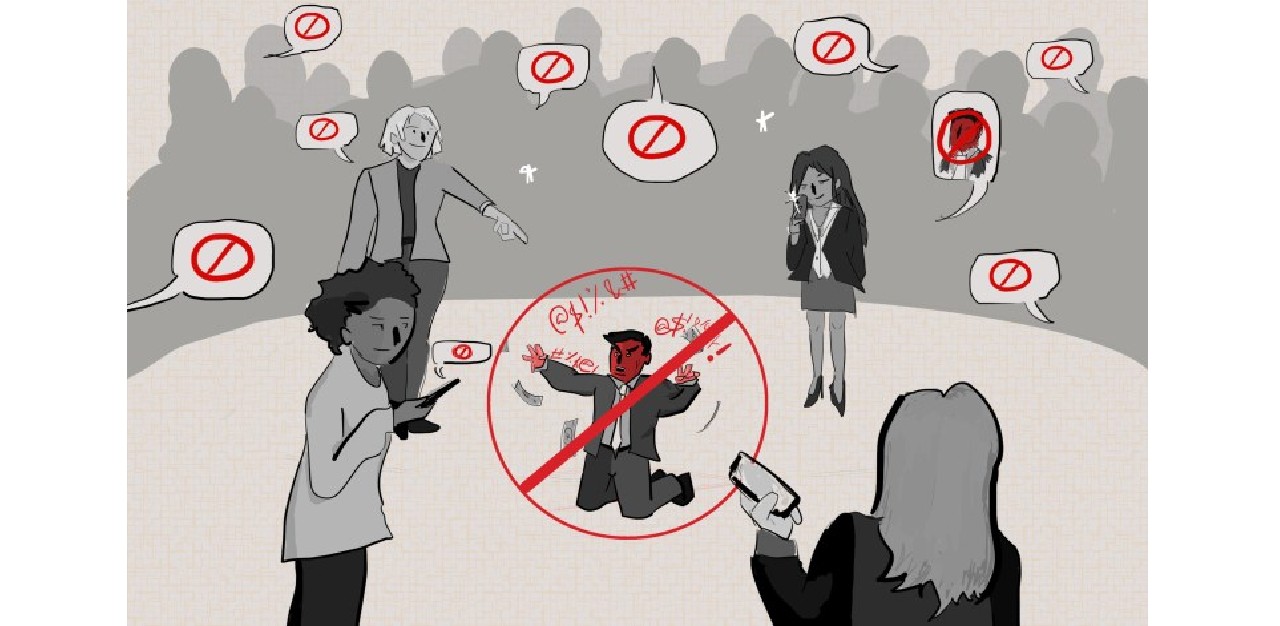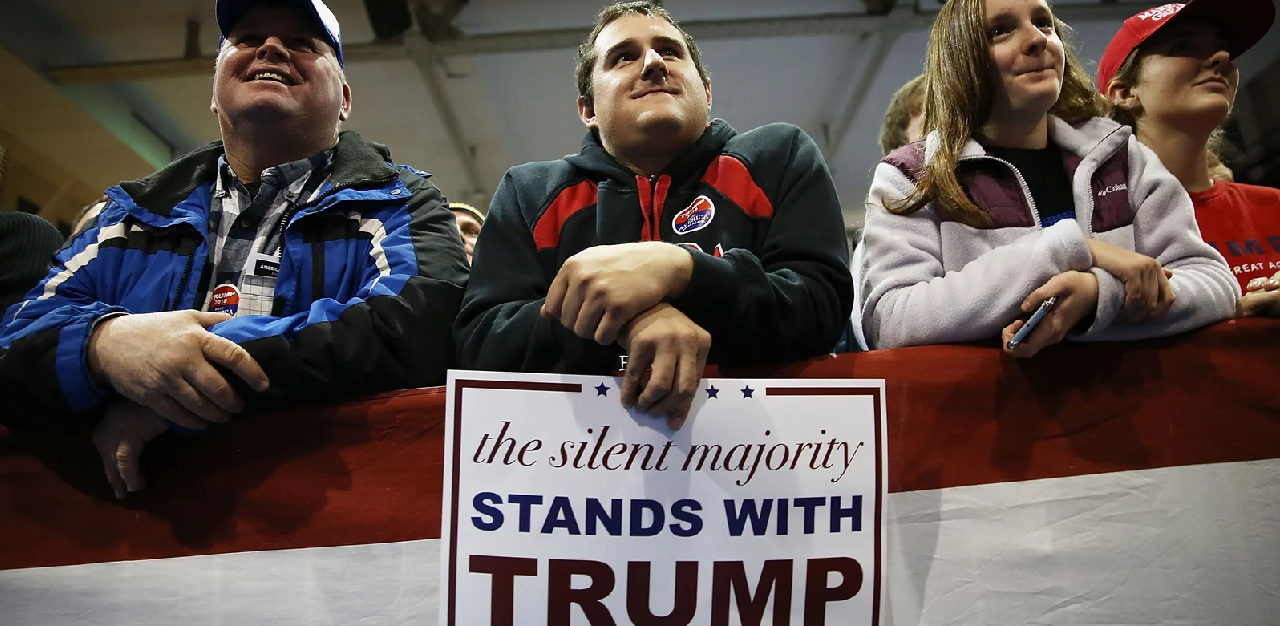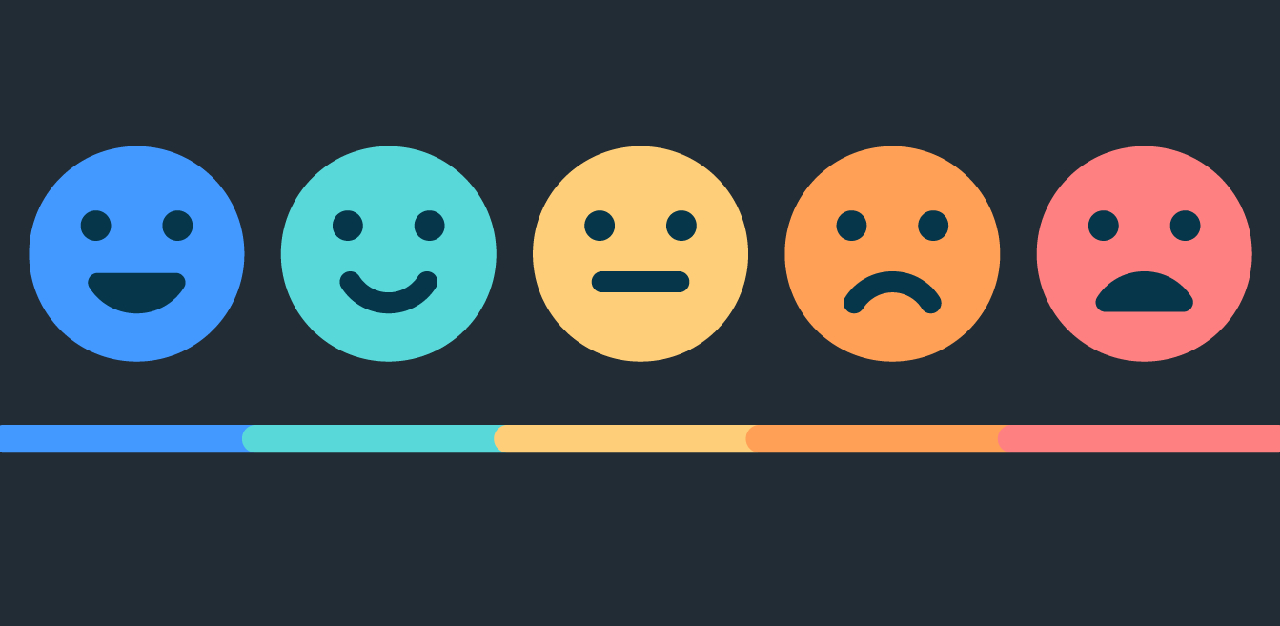Being ‘cancelled’ online is more than just reproach and rejection from society. It is a perfervid rally cry to make a person, brand or anything that is publicly known, irrelevant and ‘annihilated’. This is to display the strong disapproval of something and exert societal pressure to deal with this consequence.

One carnage of this cancel culture is the repression of opinions, beliefs and conversations which has paradoxically given rise to ‘silent majorities’. These groups do not like spectacles and therefore do not voice their opinions publicly, for fear of backlash or being doxxed and harassed. But it seems it may not always be fervent unhappiness that is festering under the silent surface, and it does not always translate into tangible socio-political problems that could make society a casualty.
What creates a silent majority
According to Dr Natalie Pang, senior lecturer for Communications and New Media at the National University of Singapore (NUS), a ‘silent majority’ is “often understood as the larger proportion of our public that does not express their opinions online”. Dr Tan Ern Ser, Associate Professor for Sociology at NUS defines it in the same vein: “[It is] a sizable category of people who occupy the middle ground and who do not express their views or opinions openly or publicly.”
What leads to the creation of such a demographic? Dr Tan continues that, “I reckon statistically speaking, there will always be a large middle ground between the two poles on a spectrum of views”. In other words, this demographic may have always existed. Dr Pang agrees, saying: “I think there has always been a ‘silent majority’ so [I believe] the online environment doesn’t really ‘create’ a silent majority”.

But the correlation between woke and cancel culture could have exacerbated and deepened the silences. “There are conditions online that contribute to the silencing,” Dr Pang explains. “For instance, uncivil exchanges (e.g. name-calling) and aggressive reactions to certain opinions can result in others being reluctant to express similar opinions (and therefore the silencing) for fear of being isolated, ostracised and humiliated online.”
Dr Tan is of the same opinion, that “it is possible some of the people who have been attacked or fear being attacked for the views they hold may choose to retreat into or stay with the silent majority”.
On the other hand, Joseph Kalaivanar weighs in on a different factor. The 46-year-old CEO and co-founder of a tech startup opines that the socio-political climate of media freedom and freedom of speech in a country, and the generation brought up under it, plays a role too. “Decades of groupthink and suppressive acts such as lawsuits [and] media control could have… conditioned [a generation], for example, the boomers, to think in a certain way [and therefore be] less tolerant of alternative views,” he remarks.
But for later generations, such as Gen X, Millennials and Gen Z, Mr Kalaivanar feels they are “more vocal, especially online, [and] becoming more politically motivated and active in the public space”. Moreover, he perceives this generation as “more open to newer ideas and ways of thinking which can run contrary to the establishment”.
Is this the carnage of cancel culture?

When it comes to the ‘silent majority’, there is one camp where fear of the outcome of voicing their opinions may lead to self-censorship. However, there is another camp where a large group of people do not feel the need to speak up.
Steve Teo, a 25-year-old NUS student, illustrates an example. “Those who are not too bothered about LGBT issues or personally affected will not be so vocal about it, even if they lean towards one side or another,” he says.
Mr Teo shares the same sentiment as Mr Kalaivanar that it is usually those who are “vocal” and looking for change who “[voice] frustrations”, thus giving the impression that the majority is silent. “I think the ‘silent majority’ has influence – especially at the polls. [That is why] they don’t really need or want to use their voice,” he explains.

What also begs the question is if ‘silent majorities’ are considered a carnage to society. Dr Tan feels that it cannot be absolutely qualified. “It’s a double-edged sword,” he says. “Where there is broad consensus and the government enjoys legitimacy, [the silent majority] can contribute to social stability and progress.”
Dr Pang has a similar perception. She comments that “whether or not [the silent majority] is a problem depends also on the issue at hand”.
Tiffany, 33 and a private tutor, also sees the good and bad in it. “It can be an advantage to society in the short term as it prevents opinion clashes among people,” she begins. “However it can also mean negative feedback [is] being concealed and ignored.”

Dr Tan agrees. He says that a ‘silent majority’ “can also be a hindrance to reform or even revolution against an oppressive regime”. He remarks that “if they remain silent in the face of an oppressive, corrupt regime, they could be considered as complicit in hindering needful social and political changes”.
J Yu, a 32-year-old software engineer, feels it can be a problem as well “if [a] government is inefficient and corrupt”. He elaborates that people who are used to the “status quo” may “remain silent” because that is “the default”. And he sees that as an issue because an institution can “continue to be corrupted and take advantage of [its] citizens”.
A ticking bomb

Though a silent majority, there is always the possibility should displeasure set in, that the group becomes a ticking bomb waiting to go off, inflicting carnage in its wake. This is made worst should individuals feel their voices are being silenced and frustrations repressed.
“If not attentively handled, a small discontentment [can brew] into an aversion to the country or government,” Tiffany warns. Mr Kalaivan agrees. In his opinion, needs have to be “heard and addressed”. The threat of homogenous thinking is high, and the repercussion of that is it “could lead to further entrenchment through enclaves of people with further pre-conceived notions of people with alternative views”.
How the silent majority can have a voice
Cancel culture can lead to bullying which is one of the causes of silenced viewpoints. To combat this, “more channels to give feedback and express opinions on different issues is important,” says Dr Pang. Choosing the right platform for the issue and matter at hand plays a significant role on the readiness of the audience to listen. She comments that “social media should not be used as the only source to understand public opinions, especially for issues that may be more divisive and contentious”.

Mr Kalaivanar agrees with this approach. “Providing multiple outlets for feedback is important,” he says, but adds that there is also a need to “create safe spaces that value opinions”.
However, he cautions that the goal is not to silence any one group, and in order for silent majorities not to form is to “validate feedback from both the silent majority and vocal minority”.
Looking at how public sentiments and interests can be escalated to the decision-making level of the government is another avenue that should be explored.
Mr Yu opines that “opposition seats [need to be] increased”. More channels and offices that take care of the specific interest of different demographics — such as the “LGBT, minority race, [low to middle] income, and physically [and] mentally handicapped” — is also a way to ensure that citizens’ feedback is heard, he stressed
It seems that cancel culture may not be entirely blamed for a silent majority, because the context under which a ‘silent majority’ functions within is not always a repressed and disgruntled group either. However, the crux of the matter is ensuring no one group of voices in society is suppressed, which is the true cost and carnage of cancel culture.
Join the conversations on TheHomeGround Asia’s Facebook and Instagram, and get the latest updates via Telegram.














